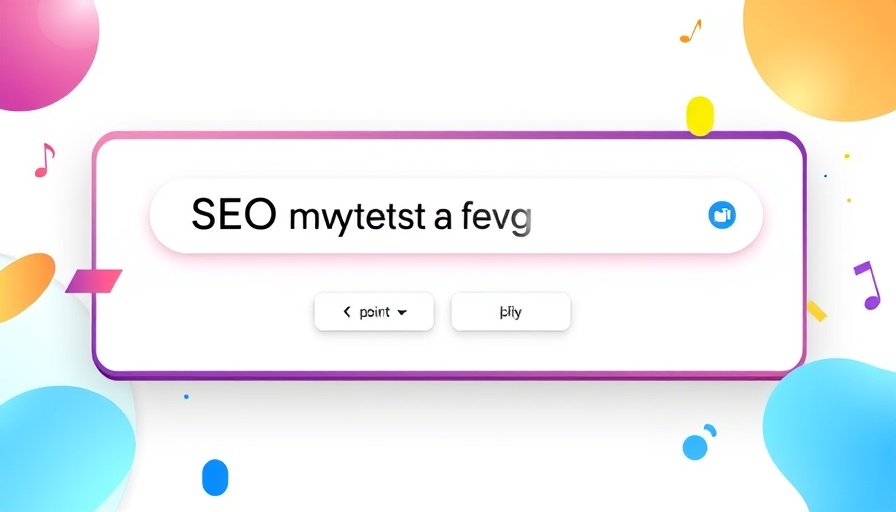
Challenging Conventional Wisdom in SEO
Many may assume that clear and valid HTML is a prerequisite for success in search engine rankings. However, Google has shed light on a different narrative, highlighting the reality that numerous top websites function with invalid HTML yet continue to dominate search results. This insight emerged from a recent episode of Google’s Search Off the Record podcast where esteemed Search Advocate John Mueller acknowledged a striking statistic: out of the top 200 websites, only one had valid HTML on its homepage.
Why Valid HTML Isn't the Holy Grail of SEO
This revelation is particularly illuminating in a world where many developers strive for HTML perfection. The truth, as expressed by Mueller, is quite the opposite: "Search engines have to deal with whatever broken HTML is out there. It doesn’t have to be perfect; it’ll still work." What matters more, according to Google engineers, are the elements that ensure search engines interpret and display content effectively. This includes ensuring that key components such as metadata are error-free and compliant, which can mean the difference between visibility and obscurity.
SEO as a Holistic Strategy
Mueller and Developer Relations Engineer Martin Splitt emphasized that SEO is more than a mechanical checklist of compliance items for developers. Instead, it requires a user-focused approach. Understanding the language and terminology that your potential customers employ is critical. This bespoke approach can often outweigh even the best technical execution. Splitt stated, "Naming things appropriately is one of the most overlooked SEO skills and often more important than technical precision."
Importance of Core Web Vitals
Another vital topic was Core Web Vitals—performance metrics that are critical for homepage rankings. Mueller pointed out, however, that achieving good Core Web Vitals scores does not guarantee improved rankings, and developers should not overly fixate on numerical scores. Similar to this sentiment, Splitt noted that JavaScript, while usable in modern web architecture, must be implemented with caution. Quality content must be rendered correctly for it to serve its purpose in aiding visibility in search engine results.
Creating Effective User Experiences
This discussion raises crucial implications for digital marketers and SEO strategists. As the landscape of search engine optimization evolves, the focus should prioritize crafting meaningful and engaging user experiences over the relentless pursuit of technical perfection. In an era marked by relentless technological advancements and shifting consumer expectations, breaking away from traditional differentiators such as strict HTML validity can lead to greater discoverability and engagement.
The Future of SEO in a Changing Landscape
Looking ahead, this conversation inevitably shapes the future of SEO practices and the tech industry overall. As new technologies and methodologies emerge, the tech community must remain agile, adopting innovative strategies that transcend outdated notions. This adaptability is nothing new to the tech industry, where continuous evolution is key to outpacing disruptive technology and market competitors.
 Add Row
Add Row  Add
Add 




 Add Row
Add Row  Add
Add 

Write A Comment